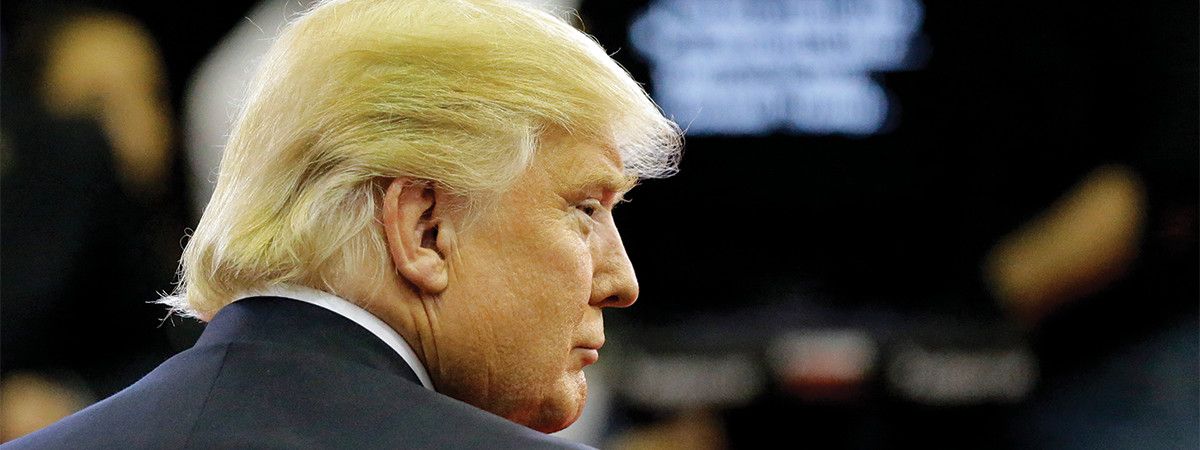
ENEMY WITHIN
Correspondence
I am writing this in the aftermath of the first presidential debate, which common sense suggests Hillary won convincingly. But as we know, rationality no longer plays much part in elections, and the incessant news cycle means my comments will inevitably be out of date when you read them. Anything I might say about Enemy Within will either seem naive or prescient, depending on the outcome of the election.
Like Hillary Clinton, Don Watson desperately wants to believe in America: it is, he tells us, “a miracle of an ever-evolving pluralist democracy and … the last great hope of humankind. It is a wonderland of invention, a marvel of freedom and tolerance, and by most measures the greatest country on earth.”
Like Bernie Sanders, he then itemises all the problems and defects that undermine these claims, especially massive inequality – four times the incarceration rate of China – and the overwhelming impact of money in politics. He doesn’t discuss the recent “evolution” of the political system, which has led to systematic gerrymandering of elections to the House of Representatives and could ensure Republican control even in the face of a major Democratic vote this November.
The emphasis of the subtitle of this essay is revealing: “American politics in the time of Trump.” Hillary Clinton remains the more likely future president, but she receives little attention in this essay, which is concerned with explaining the unlikely appeal of Trump, who both appals and fascinates us all. Like others caught up in a bromance with Bernie Sanders, Don’s support for Clinton is at best grudging – her election is necessary to block Trump – and ignores that millions of Democrats backed her in the primary because they actually want her as president.
Don explains that he focused his essay on Wisconsin to avoid the clichéd bastions of either the liberal coastal cities or the redneck Deep South: “a normal sort of place.” His description of Wisconsin rightly includes the poor and largely African American centre of Milwaukee, but he hardly lingers there, and the bulk of the essay reflects an America that is overwhelmingly white and torn between progressive and conservative traditions.
By largely ignoring non-white Americans, Don fails to convey the strong support for Hillary, and why Bill Clinton was regarded by many as “the first black president.” There are good reasons for progressives to criticise Hillary: her closeness to major corporate interests and her record on foreign interventions among them. But there are also positives in her record, largely overlooked by those who look back longingly at the quixotic hopes of Bernie Sanders to capture a nomination he was never seriously likely to win.
Don ends his essay by describing Hillary as “a foreign policy hawk with no demonstrated ability to think beyond the doctrine of exceptionalism.” It is true that as Secretary of State Clinton is known to have favoured a more interventionist position on several crucial issues than did President Obama. But two questions arise: was she always wrong? And has she learnt from those areas where intervention proved disastrous? Maybe Clinton was right to push for stronger US involvement in Syria, to have wanted the United States to impose a no-fly zone before Russian and Turkish involvement made this impractical?
Whether she realises that much American intervention in the Middle East has been, at best, counterproductive is hard to assess, as it is hardly the stuff of campaign oratory. Both Trump and Sanders played on the weariness that most Americans feel after almost two decades of military interventions – Afghanistan, Iraq, Libya – that have only fuelled instability and disaster. Let’s hope that Clinton shares some of this scepticism and is willing to learn from past mistakes.
Dennis Altman
Dennis Altman is a professorial fellow in human security at La Trobe University. His most recent books are Queer Wars (with Jon Symons) and How to Vote Progressive in Australia (edited with Sean Scalmer).
CONTINUE READING
This is a reply to Don Watson’s Quarterly Essay, Enemy Within: American Politics in the Time of Trump. To read the full essay, login, subscribe, or buy the book.
ALSO FROM QUARTERLY ESSAY










